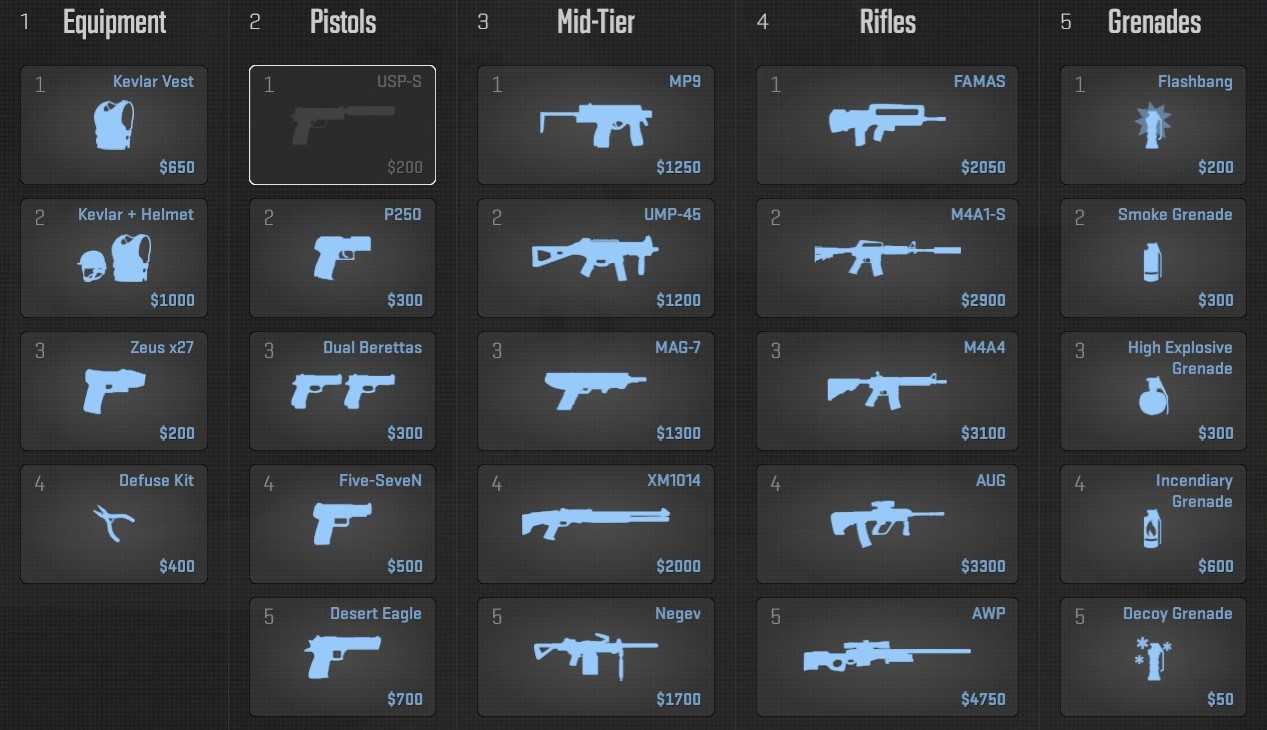Southeast Insights
Your go-to source for news and information from the vibrant heart of Shenyang.
Why Going All In: The Secret Sauce of CS2 Force Buy Rounds
Unlock the secret to winning CS2 force buy rounds! Discover why going all in is the ultimate strategy for dominating your opponents.
Mastering the Economics: How to Optimize Force Buy Rounds in CS2
In the competitive landscape of CS2, mastering the economics of the game is crucial for success, especially during pivotal moments like force buy rounds. A force buy occurs when a team, despite having limited funds, decides to invest in weapons and equipment to maximize their chances of winning a round. By effectively allocating resources and understanding the economics at play, teams can optimize their chances of not only securing an unexpected victory but also turning the tide in future rounds. Key strategies include choosing the right mix of rifles, SMGs, and utility based on the current economy, as well as communicating effectively with teammates to ensure cohesive decision-making.
To further refine your approach to these high-risk rounds, it's essential to analyze the opponent's economy and adjust your strategy accordingly. Keep an eye on their buy phase and be prepared to respond to their actions; for example, if they are likely to be low on funds, a well-timed rush can place immense pressure on their defenses. Implementing effective communication during force buys, such as using callouts for specific roles and responsibilities, can enhance your team's effectiveness. Remember, successfully navigating the force buy rounds requires a balance of aggression and caution—take calculated risks, and you might just pave the way for a comeback that keeps your team in the game.

Counter-Strike is a popular first-person shooter game that has captivated players worldwide with its tactical gameplay and competitive nature. Players can join various modes, engage in team-based combat, and hone their skills in a variety of maps. However, it's essential to be aware that some of your game files have been detected cs2, which may impact your gaming experience.
The Psychology of Going All In: Why Force Buying Can Turn the Tide
The concept of going all in in various contexts, especially in business and personal development, is often rooted in psychological principles. When individuals make the decision to force buy, they are not merely engaging in impulsive behavior; rather, they are committing emotionally and cognitively to a particular choice. This strategic decision can activate feelings of urgency and importance, which in turn elevates the perceived value of the purchase. Research indicates that when a person adopts an 'all or nothing' mentality, they often experience enhanced motivation to follow through with their decision, ultimately resulting in a higher likelihood of success.
Furthermore, force buying can serve as a powerful catalyst for change. By fully committing resources—whether financial, emotional, or time-based—individuals may find themselves pushed out of their comfort zones. This can lead to new opportunities and experiences that would otherwise be avoided. As consumers embrace this mindset, they can create a feedback loop of enthusiasm and affirmation, bolstering their confidence and inspiring them to adopt similar behaviors in different areas of their lives. Consequently, going all in can not only amplify immediate satisfaction but also foster long-term personal growth and resilience.
Is Force Buying a Gamble or Strategy? Analyzing CS2's All-In Tactics
In the world of competitive gaming, particularly in titles like CS2, the concept of Force Buying has sparked considerable debate among players and strategists alike. At its core, force buying refers to the tactic where players opt to purchase weapons and equipment even when their economy would suggest otherwise. This approach can be both a gamble and a calculated strategy, depending on the player's understanding of the situation. When executed correctly, a force buy can catch opponents off guard, enabling a team to secure critical rounds and gain momentum in the match. However, the risks are substantial: failing to win the round can lead to economic disadvantage, setting the team back significantly.
To analyze whether Force Buying is more akin to a gamble or a strategy, one must consider the context in which it is employed. Factors such as the current score, remaining rounds, and the opposing team's economy play essential roles in the decision-making process. Many players argue that successful force buying hinges on a team's ability to communicate effectively and adapt their tactics mid-game. As with any strategy in CS2, the key lies not just in pulling the trigger, but in understanding when and how to leverage all-in tactics. Ultimately, whether seen as a gamble or a strategic play, force buying remains a fascinating aspect of gameplay that can influence the outcome of matches.